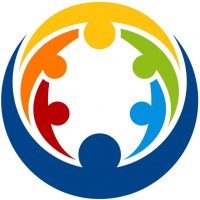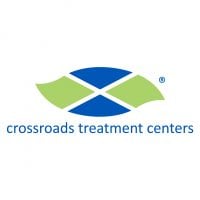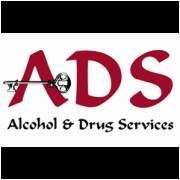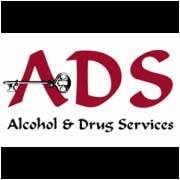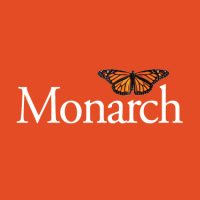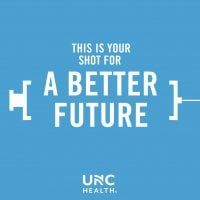Alamance County - Adult Mental Health and Substance Abuse Services
Drug Rehab Center in Burlington, North Carolina
Alamance County - Adult Mental Health and Substance Abuse Services is a treatment center located in Burlington, North Carolina that offers personalized care, specialized services for addiction and mental health issues, and 24-hour access to a crisis hotline for individuals living in the area.
Multiple patients have reported Alamance County - Adult Mental Health and Substance Abuse Services as permanently closed.
Research other rehabs in Burlington, North Carolina, or get help finding an open facility.
About Alamance County - Adult Mental Health and Substance Abuse Services in North Carolina
Adult Mental Health and Substance Abuse Services in Alamance County, Burlington, NC offer a range of treatments and therapies to help those dealing with substance abuse and mental health issues. They provide specialized treatment plans designed to help individuals and couples facing issues such as drug addiction, alcohol abuse and dual diagnosis. Trained professionals guide each individual or couple through the process, providing support, education and resources. Counselling sessions can include couples therapy, family therapy, group therapy and individual therapy. Treatment plans may also include residential long term care, aftercare and outpatient services for those who don't require round-the-clock care. They accept private health insurance and provide a safe and supportive environment for their clients to heal and recover from addiction.
Adult Mental Health and Substance Abuse Services strive to provide their clients with the best care available. They create custom treatment plans designed to meet the needs of each individual, and use evidence-based methods to help their clients increase their self-confidence and develop the skills and strategies necessary to manage their mental health and substance abuse. With compassionate and experienced professionals, they help create a safe, accepting and understanding space for those who are struggling with addiction. Adult Mental Health and Substance Abuse Services is the perfect place to turn to for those looking to reclaim their lives from addiction and build strong, healthy and balanced lives.
Genders
Ages
Modality
Additional
Conditions and Issues Treated
With so many people addicted to opioids, we need to help those who want to quit. The cycle begins when opioid addicts take opioids for a painful injury. When someone starts taking their medication differently or in excess, it means they’re addicted and at risk of overdosing.
In , detoxing from these types of treatments is the most effective way to beat this. Most facilities begin with medical assistance and then provide counseling services; rehabilitation follows after successful treatment.
Levels of Care Offered
This center offers a variety of custom treatment tailored to individual recovery. Currently available are Aftercare Support, Drug Rehab, Outpatient, with additional therapies available as listed below.
Alcohol or drug addiction, or co-occurring disorders, are treated in an outpatient program. The patient must attend therapy and other programs at the facility but can return home each night.
Outpatient treatment allows recovering addicts to live at home while receiving addiction treatment. Outpatients can attend group sessions for a few hours per week. Outpatients may also continue to work full time and study/attend school without interruption if they choose.
The accomplishment of completing a drug or alcohol treatment program is just the first step. Once that is complete, aftercare support comes into play. This includes helping people adjust to life without substances outside of guidelines with assistance like getting sober living accommodations and career counseling and AA/NA programs for those who are struggling between sobriety or want continued help in maintaining it once they have completed their initial rehabilitation at an addiction facility.
Aftercare comprises services that help recovering addicts readjust to normal day-to-day activities while working on specific issues. These problems include psychiatric issues, family problems caused by substance abuse, continuing education pursuits if desired during rehab, etc. These can last up to one year+ depending on what’s needed most urgently upon completion of earlier stages.
Therapies & Programs
Different people react differently to various treatment options. Some drug rehabilitation centers offer individualized treatment that caters to the specific needs of a drug addict. The best treatment option varies on an individual depending on the type of drug abused, life history, medical condition of the person, social circumstances, and the environment they live in now.
When a person enters drug rehab, they usually have anti-drug associations such as withdrawal symptoms, stress, cravings, etc. The first step of drug rehab is to detoxify the body from any residual substances in it. Drug rehabilitation centers usually employ trained medical professionals to help in this process. Usually, the initial detoxification lasts for five days, where the person is monitored under close supervision.
Couples therapy is a treatment method used to help couples in which at least one member of the couple has a drug addiction. The treatment is designed to help the couple strengthen their relationship to minimize the effects of drug addiction on their lives and promote healthy communication between them.
Couples therapy can be used whether the addicted partner is using drugs or in recovery. It helps the couple create healthy communication and coping skills to minimize the problem-solving abilities of one partner, which can then be directed at solving issues related to their addiction. It also helps couples address problems that may be related to drug addiction. Couples therapy can help couples feel like a team and not feel like their partner is the problem.
Couples therapy is very challenging for both the drug addict and their partner. It requires an intense commitment between the two individuals to participate in the sessions and the homework assigned between sessions.
An additional benefit of couples therapy is that it can help make other types of treatment, such as 12-step programs, more effective.
Family therapy sessions typically involve the addict and their family members. During these sessions, a therapist will work with everyone involved to help them understand addiction and find healthy ways of coping without substance abuse.
Some addicts might feel embarrassed about their substance abuse problems. By encouraging family members to attend these sessions, therapists can show addicts that they’re not alone in dealing with addiction. Therapists can also work with family members to help them understand addiction and learn how to offer support and encouragement to their loved one as they deal with substance abuse issues.
Attending group therapy at Alamance County - Adult Mental Health and Substance Abuse Services in , is a useful way for those seeking sobriety to realize they aren’t the only one going through it.
This is when a group of people on different recovery phases get together and talk about what they’re going through, their triggers, successes, and failures. This can include alternative types of therapies too! Group therapy may occur on an outpatient or inpatient basis with groups that have no pre-existing relationships outside the session, unlike support groups where everyone already knows each other beforehand.
Payment Options Accepted
For specific insurance or payment methods please contact us.
Is your insurance accepted?
Ask an expert, call (888) 674-0062
Additional Details
Specifics, location, and helpful extra information.
Burlington, North Carolina 27217 Phone Number(336) 513-4200 Meta DetailsUpdated November 25, 2023
Staff Verified
Alamance County - Adult Mental Health and Substance Abuse Services Patient Reviews
There are no reviews yet. Be the first one to write one.
Burlington, North Carolina Addiction Information
North Carolina ranks 29th in the nation for overall substance abuse. Many of the drugs abused in the state are illicit, and many of these are opioids. Prescription opioids are readily available due to the high rates of medical workers prescribing them. The number of prescriptions has increased tenfold since the 1980's. Opioid overdoses are the most common type of death in North Carolina.
An estimated 4,000 people in Burlington, NC were addicted to drugs in 2017. People who were addicts were more likely to suffer from mental health disorders. 16% of Burlington residents who reported using illicit drugs are minor. The most common drugs being abused in Burlington are heroin, methamphetamine, cocaine, prescription drugs, and marijuana. The type of treatment that is right for you will depend on your unique situation.
Treatment in Nearby Cities
- Rutherfordton, NC (151.9 mi.)
- Garner, NC (51.9 mi.)
- Columbus, NC (167.5 mi.)
- Mars Hill, NC (177.0 mi.)
- Conover, NC (105.2 mi.)
Centers near Alamance County - Adult Mental Health and Substance Abuse Services
The facility name, logo and brand are the property and registered trademarks of Alamance County - Adult Mental Health and Substance Abuse Services, and are being used for identification and informational purposes only. Use of these names, logos and brands shall not imply endorsement. RehabNow.org is not affiliated with or sponsored by Alamance County - Adult Mental Health and Substance Abuse Services.


